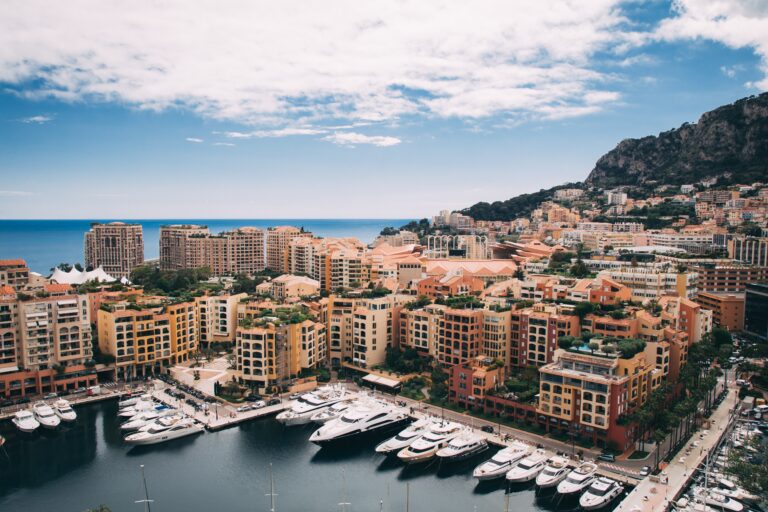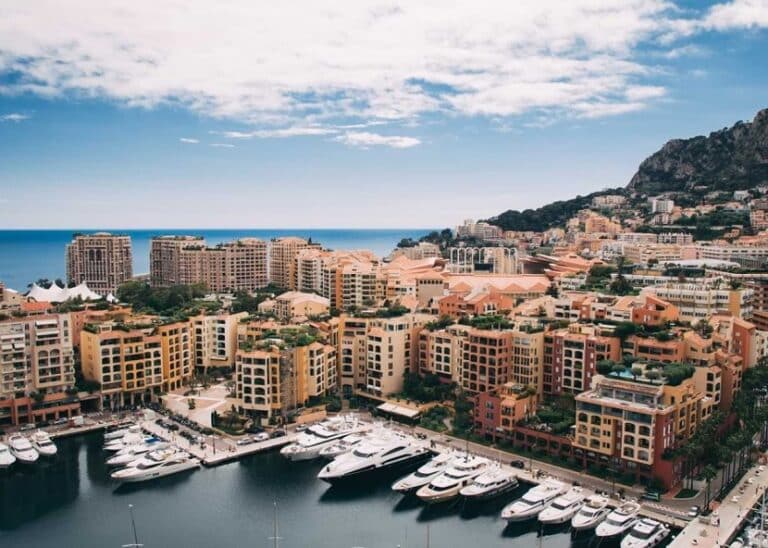Achieving tax residency in Monaco to enjoy tax exemptions without actually living there has become increasingly challenging and risky, especially with European tax authorities’ heightened scrutiny and data sharing.
It is crucial to understand that in today’s transparent financial environment, attempting to claim Monaco residency without substantial proof is not only difficult but could have serious legal repercussions.
New report
The report “The definitive guide to living in Monaco” is now available, with detailed information on Monaco’s tax framework, residence and society.
Click here to download it for free.
Risks of not spending enough days in Monaco
Becoming a tax resident in Monaco is not enough to aim for tax benefits: it is also crucial to comply with both Monegasque regulations and the scrutiny of foreign tax authorities.
Contrary to popular belief, simply renting an apartment in Monaco does not guarantee tax residency status. Real residency requires spending a significant amount of time in Monaco, typically over 183 days per year, to qualify for tax benefits.
For instance, if you split your time between Cannes or Como and Monaco, spending the majority of your time outside the Principality, you risk being considered a tax resident of France or Italy instead.
This highlights the importance of understanding and meeting Monaco’s residency requirements to legitimately benefit from its tax regime.
Why it’s important to stay as many days as possible in Monaco
Long-term physical presence in Monaco is essential for many reasons. The main three aspects to consider when spending the minimum amount of days to stay in Monaco are the following:
- Tax residency criteria and international tax matters to be considered fully tax resident in Monaco.
- Tax certificate request in front of the Monegasque Tax Authorities.
- Renewal of the “Carte de Séjour” or residency permit.
Minimum stay for tax purposes: 183-day rules and alternatives
The key to becoming a tax resident in Monaco and benefiting from tax exemptions lies in meeting the Principality’s residency requirements. This typically involves the following:
- Residing in Monaco for over 183 days annually (not necessarily consecutively).
- Alternatively, having the center of economic interests in Monaco would allow the resident to spend less physical time in Monaco (either by investing in the country in financial assets, and real estate or by setting up an SPV or a family office).
Additionally, obtaining a tax certificate from Monegasque authorities further validates residency status, ensuring compliance with both Monaco’s regulations and international tax obligations.
In this regard, it is important to stay a substantial amount of days in Monaco since the Monegasque tax authorities will require the following things to request the tax certificate:
- Prove that he/she holds a valid administrative residence permit or “Carte de séjour”;
- Declare on his or her honor that he or she meets the tax residence criteria, which means have his or her “foyer” in Monaco by spending more than 183 days in the country or having its center of economic interest in Monaco;
- Prove that he/she occupies a dwelling in Monaco, i.e. prove his/her residence in Monaco during the last year (whether owned, rented, or cohabiting with someone) through utility bills, rental agreements, and other proof admitted by the Monegasque Law;
- Provide any other document that may be requested by the Administration if the previous documents are not enough to show a solid residence in the country.
In short, from our experience, the Monegasque Administration often requires additional documents to prove that the residence is real such as utility bills, gym membership, etc.
Minimum stay for residency renewal
Apart from tax matters, staying a few days in Monaco is also crucial for residency permit renovation before its expiry date. During the renovation process, the Monegasque authorities require the following things that imply spending time in the country:
- The mentioned certificate is for tax purposes.
- The last electricity bill relating to your accommodation.
Without those two documents, you will be at risk of not being renewed for immigration purposes and your residency permit can be canceled.
Myths and legends about Monaco’s residency
Gone are the days of the Monaco characterized by dimly lit streets, empty buildings, offshore accounts, and secretive banking practices.
Today, Monaco is reimagining its image in Europe as a sun-soaked, tax-friendly jurisdiction that offers exceptional financial services and an unparalleled lifestyle at the heart of Europe.
The government is keen on ensuring that those claiming residency truly integrate into this vibrant community by spending sufficient time in the Principality and upholding tax compliance, steering clear of tax fraud, and contributing to Monaco’s bright future.
How to take the first step?
At MonacoAdvisers we have been helping entrepreneurs, high-net-worth individuals, sportsmen and women, and people from the world of cryptocurrencies to transfer their tax residency to Monaco for years.
Our presence and contacts in Monaco make us an ideal travel partner for this arduous task. So if you have questions about Monaco and would like us to help you with the process, please write to us at [email protected].
If you are interested in changing your tax residence and are not sure if this is your ideal destination, we recommend you download for free and read our updated report “The definitive guide to living and paying taxes in Monaco”, available below.



 All communications are encrypted and will be treated with absolute confidentiality. Your data will never be shared with third parties.
All communications are encrypted and will be treated with absolute confidentiality. Your data will never be shared with third parties. 




